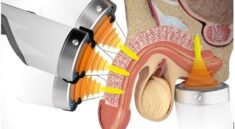Polygraph examinations are scientific procedures that measure and analyze physiological responses, such as heart rate, breathing patterns, and skin conductivity, while an individual answers a series of questions. These responses are then interpreted by trained examiners to assess the likelihood of truthfulness or deception. While the practice of lie detector testing has traditionally been associated with law enforcement and criminal investigations, the demand for discreet and confidential services has been on the rise across various sectors and personal situations.
Applications of discreet lie detector testing
- Business and corporate investigations – Discreet lie detector testing is a valuable tool for businesses and organizations investigating suspected fraud, theft, or other forms of misconduct within their workforce. These services can aid in verifying witness statements, identifying potential deception, and gathering evidence to support internal investigations.
- Litigation support and legal proceedings – In certain jurisdictions and legal contexts, discreet lie detector testing may be used to support litigation or legal proceedings. The results of these examinations provide corroborating evidence, verify witness testimony, or aid in the pursuit of justice and resolution of legal disputes.
- Personal security and risk mitigation – For individuals or organizations with heightened security concerns, discreet lie detector testing serves as a risk mitigation tool. By verifying the truthfulness of potential employees, contractors, or associates, these services help identify potential threats and safeguard sensitive information or operations.
Reputable service providers prioritize discretion, ensuring that the identities of clients and the details of their examinations remain strictly confidential. Discreet lie detector testing services are conducted by trained and experienced professionals who adhere to strict ethical standards and best practices. This objective approach ensures that examinations are conducted fairly, without bias or coercion, and that the results are interpreted accurately. Lie detector tests are based on scientifically validated principles and methodologies. While not infallible, these examinations provide a reliable means of assessing truthfulness by measuring physiological responses that are difficult to control or manipulate consciously. You can Do polygraph training on liedetectortest.com/polygraph-training.
Discreet lie detector testing services are tailored to meet the specific needs and requirements of individuals or organizations. Service providers work closely with clients to understand the context and develop appropriate examination protocols to ensure accurate and relevant results. For individuals or organizations seeking clarity and resolution, discreet lie detector testing can provide valuable insights and peace of mind. The results of these examinations can aid in informed decision-making processes, whether it’s resolving personal conflicts, addressing business concerns, or navigating legal matters.
Reputable service provider
While the benefits of discreet lie detector testing are numerous, the reliability and accuracy of the results depend heavily on the competence and professionalism of the service provider. When selecting a provider, consider the following factors:
Adherence to professional standards and ethics – Reputable service providers should adhere to strict professional standards and ethical guidelines. They should be members of respected professional organizations, follow codes of conduct, and maintain robust policies to protect client privacy and ensure ethical practices.
Quality of facilities and equipment – The quality of the examination facilities and equipment can significantly impact the accuracy of the results. Prioritize service providers that invest in state-of-the-art polygraph instruments and maintain controlled examination environments to minimize external influences.
Reputation and client testimonials – Research the reputation and client testimonials of potential service providers. Positive reviews and recommendations from trusted sources provide valuable insights into the quality of service, reliability, and overall client satisfaction.
Transparency and communication – Effective communication and transparency are crucial when engaging discreet lie detector testing services. Reputable providers should be willing to clearly explain the examination process, address any concerns or questions, and provide comprehensive post-examination debriefing and reporting.





